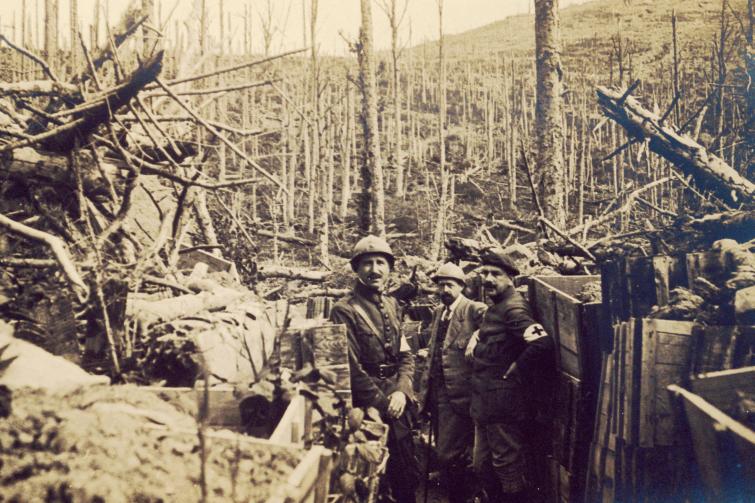
 News
News
Institut Pasteur scientists during the Great War
Just a couple of days before we commemorate the 100th anniversary of the armistice that brought an end to the First World War, the Institut Pasteur newsletter and the Research Journal at pasteur.fr have prepared a special feature on the work of the Institut Pasteur's scientists during the Great War, a conflict that had such a profound impact on the course of history.
When the institute that bears his name was inaugurated, Pasteur declared: "[…] I would say that two contrary laws seem to be wrestling with each other today: one, a law of blood and death, which by dreaming up new means of combat every day, forces nations to be constantly ready for the battlefield, the other a law of peace, work, and health, which only dreams of freeing humans from the scourges that beset them. […] The law we are instruments of seeks […], through carnage, to heal the bloody wounds of this law of war. […] Which of these two laws will ultimately prevail? God alone knows."
A quarter of a century later, on August 3, 1914, war was declared between France and Germany. It was the most horrific and deadly war in history, during which alas, in Louis Pasteur's own words, the law of blood and death prevailed. However, as Pasteur had foreseen, his work and that of other Institut Pasteur scientists saved the lives of thousands of soldiers.
Thus, thanks to the typhoid fever vaccine, it is likely that Institut Pasteur scientists prevented at least one million soldiers from contracting this, often deadly, disease. Thanks to appropriate treatment of injuries and use of serotherapy, they saved millions of soldiers from dying of tetanus, septicemia or gangrene. By insisting upon effective malaria prophylaxis, they kept the Eastern army in good health, enabling it to play a decisive role in the victorious offensive it led in October 1918.

They also tried to control the rats infesting the trenches and played numerous other roles, such as, for example, setting up a network of microbiology laboratories close to the front line. During this terrible conflict, an Institut Pasteur scientist discovered bacteriophages, a breakthrough that would revolutionize biology. All this took place under the leadership of Émile Roux, who had been Pasteur's right-hand man and who, more than any other person, invested in the Institut Pasteur heart and soul.
The role played by the Institut Pasteur during the Great War has largely been forgotten today and deserves to be remembered.